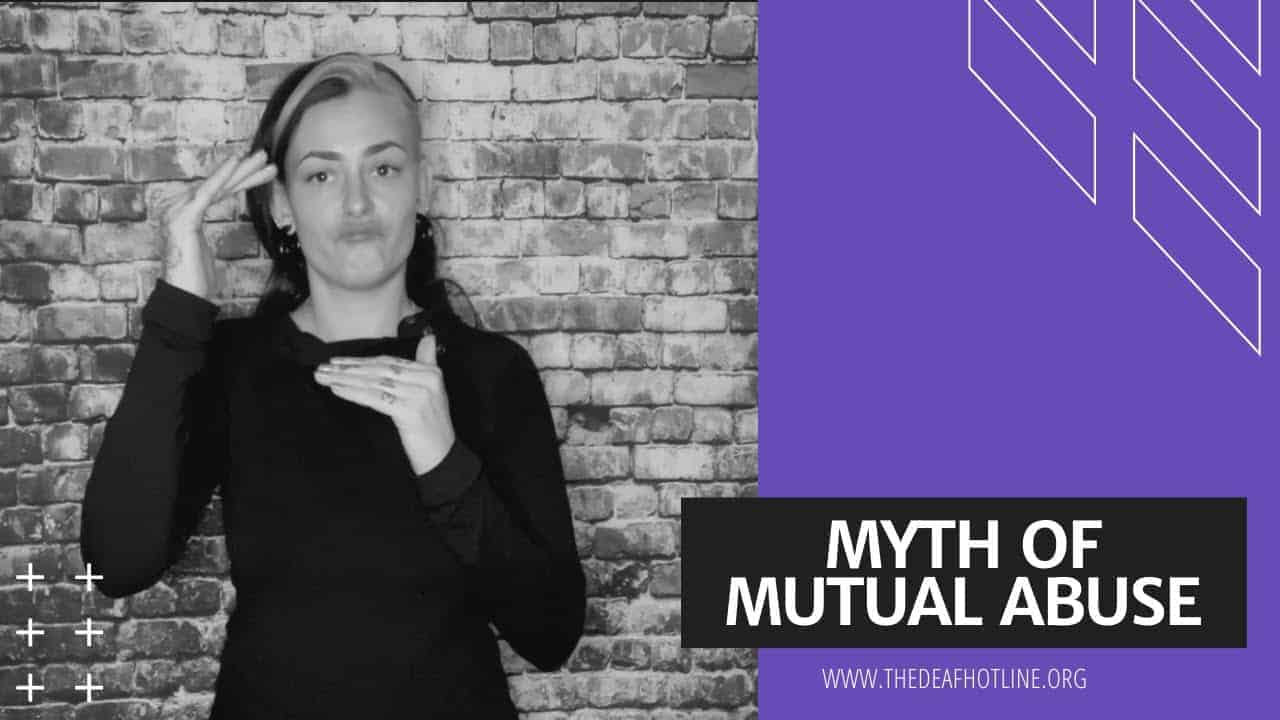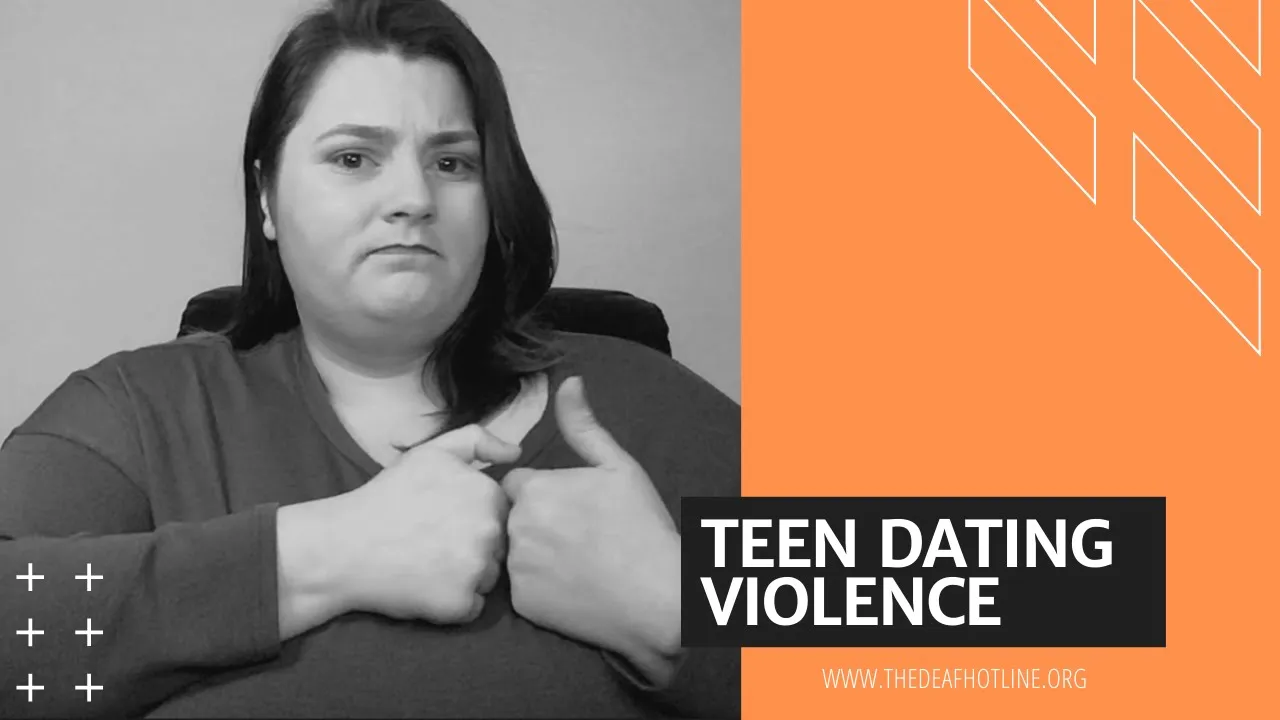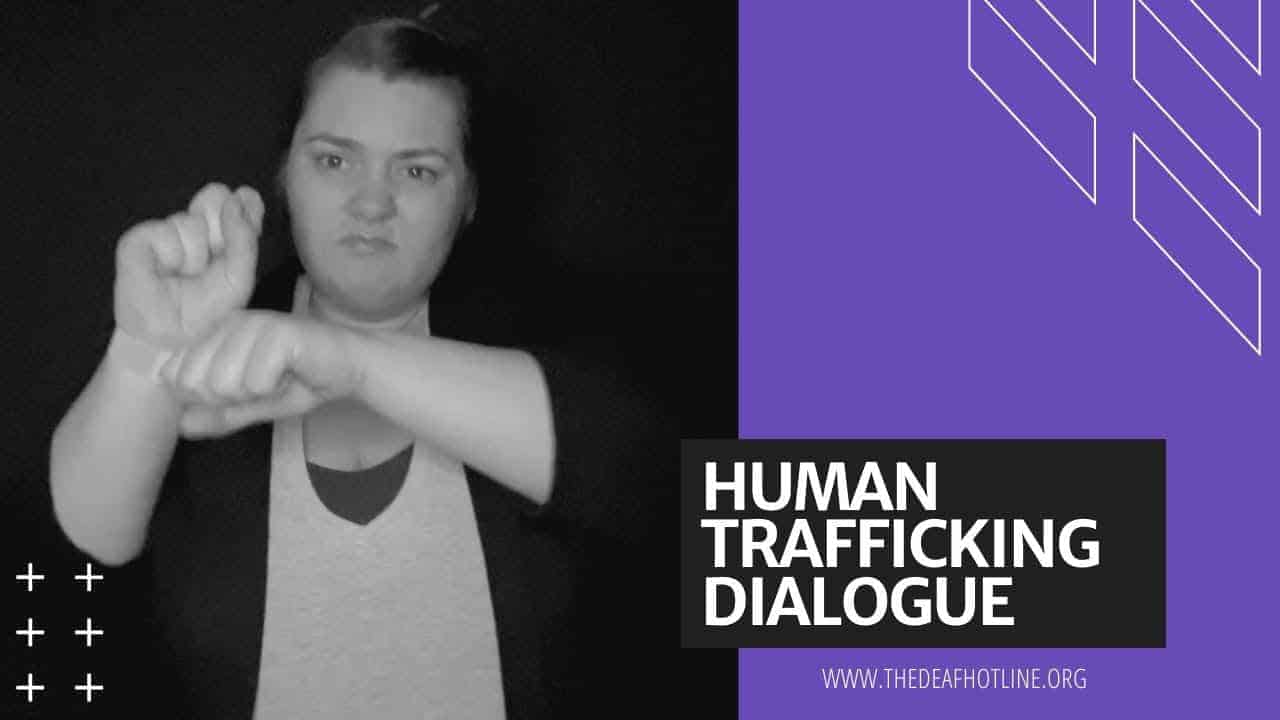In the shadows of domestic violence, the toll on mental health can be profound and enduring for deaf individuals. It is crucial to recognize and address the silent struggles faced by survivors as they navigate the complex aftermath of abuse. This blog post aims to shed light on the impact of domestic violence on mental health, fostering understanding and compassion for those on the path to healing.
The Weight of Trauma for Deaf Survivors:
Survivors of domestic violence, including those who are deaf, often carry the weight of trauma long after the physical wounds have healed. Persistent fear, anxiety, and hypervigilance can lead to conditions like PTSD.
For deaf individuals, the trauma may be compounded by communication barriers, making it harder to access support services and mental health resources. The lack of accessible information and counseling services in ASL can exacerbate feelings of isolation and anxiety and make them not motivated to look for help. Furthermore, the hypervigilance often associated with trauma might be heightened by the need to constantly navigate an environment not fully accessible or accommodating to their communication needs. It truly can be mentally and emotionally tiring for Deaf people.
Depression and Isolation for Deaf Survivors:
The isolation enforced by abusers can lead to profound feelings of loneliness and despair. Deaf survivors may battle depression as they grapple with the emotional scars of their experiences. Some abusers may be hearing and take advantage of the deaf and get away with abuse.
For deaf individuals, this isolation can be intensified by communication barriers and a lack of accessible support services in ASL. This can make it even harder for them to seek help and connect with others, deepening their sense of loneliness and despair.
Providing accessible mental health support in ASL is crucial to help deaf survivors overcome depression and isolation.
Low Self-Esteem and Self-Blame for Deaf Survivors:
Repeated instances of verbal and emotional abuse can erode self-esteem, leaving survivors with deep-seated feelings of worthlessness and self-blame. That kind of feeling certainly can cause the Deaf person to not want to report the abuse. For deaf individuals, these feelings can be intensified by the challenges of communication barriers and the lack of accessible support services in ASL.
Overcoming these negative self-perceptions is crucial for mental health recovery. Providing accessible counseling and support in ASL can help deaf survivors rebuild their self-esteem and address feelings of self-blame.
Anxiety and Panic Disorders for Deaf Survivors:
Living in a constant state of fear can give rise to anxiety and panic disorders. Deaf survivors may experience heightened levels of stress and anxiety, which can severely impact their daily lives and overall well-being. It could make it difficult for them to even get out of their home, to do simple errands, but the anxiety disorder has taken over their lives.
For deaf individuals, these conditions can be exacerbated by communication barriers and a lack of accessible support services in ASL. The inability to easily communicate their fears and anxieties can increase feelings of isolation and distress.
Providing accessible mental health resources, counseling/therapy in ASL is essential to help deaf survivors manage anxiety and panic disorders effectively. It is important to be able to express our thoughts and feelings in our own home language.
Guilt and Shame for Deaf Survivors:
Survivors often grapple with overwhelming feelings of guilt and shame, even when they are not at fault. For deaf individuals, these emotions can be intensified by communication barriers and a lack of accessible support services in ASL.
Addressing these emotions is essential for rebuilding a positive self-image. Providing accessible counseling and support in ASL can help deaf survivors work through feelings of guilt and shame and foster a healthier self-perception.
Impact on Interpersonal Relationships for Deaf Survivors:
The aftermath of domestic violence can strain relationships with friends, family, and potential romantic partners. For deaf individuals, communication barriers can make it even harder to rebuild trust and form healthy connections.
Learning to trust again and establish healthy relationships is crucial for the healing process. Providing accessible support and resources in ASL can help deaf survivors navigate these challenges and foster positive interpersonal relationships.
Coping Mechanisms for Deaf Survivors:
Many survivors develop coping mechanisms during an abusive relationship, such as substance abuse or self-harm. For deaf individuals, recognizing and addressing these coping strategies can be more challenging due to communication barriers and a lack of accessible support services in ASL.
Accessible mental health resources and counseling in ASL are vital to help deaf survivors identify unhealthy coping mechanisms and develop healthier strategies for recovery.
Role of Professional Support for Deaf Survivors:
Seeking professional support, such as counseling or therapy, is instrumental in addressing the complex mental health challenges that arise from domestic violence. For deaf individuals, accessing these services can be challenging due to communication barriers and a lack of professionals trained in ASL.
Trained professionals who can communicate in ASL or provide interpreters are crucial in providing the necessary tools for coping, healing, and rebuilding. Ensuring that deaf survivors have access to accessible mental health support is essential for their recovery.
Conclusion for Deaf Survivors:
Understanding the profound impact of domestic violence on mental health is a crucial step towards breaking the cycle of abuse. Deaf survivors deserve empathy, support, and access to resources that prioritize their mental well-being and are accessible in ASL. 
This is exactly why we have the Deaf Hotline, so the Deaf people have access to help without worrying about getting interpreters, or even feeling heard.
If you or someone you know is struggling with the mental health effects of domestic violence, reach out to us Deaf Hotline.



